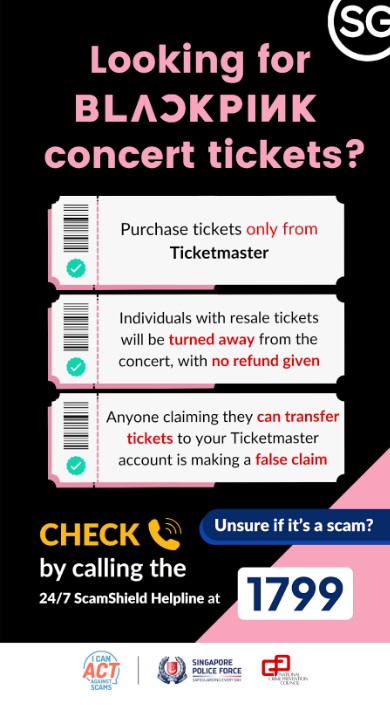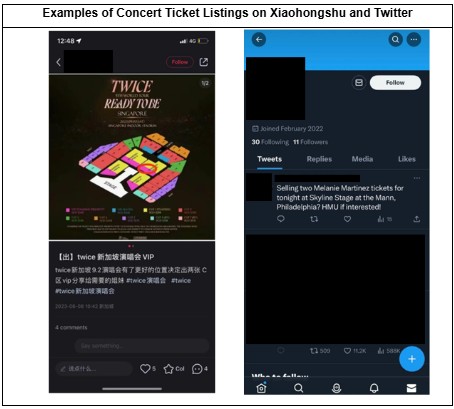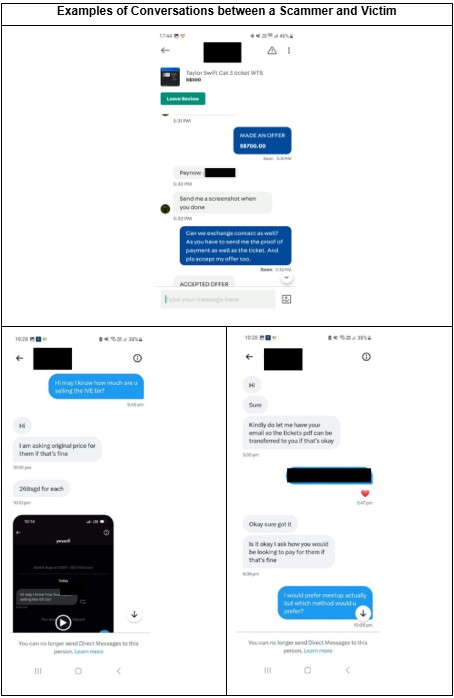The Singapore Police Force (SPF) has issued a public advisory warning fans about scams for the upcoming Blackpink concert in Singapore.
The advisory, released on 12 June 2025, urges fans to purchase tickets only through Ticketmaster, the sole authorised ticketing platform for the event.
Blackpink is scheduled to perform in Singapore on 29 and 30 November 2025 at the National Stadium as part of their Deadline world tour.
As of 14 June 2025, most tickets have sold out through official channels.
Removal of Listings on Carousell, Facebook, and TikTok
SPF has contacted online platforms, including Carousell, Facebook Marketplace, and TikTok, requesting the removal of all Blackpink concert ticket resale listings.
Carousell confirmed that, in compliance with the police request, all listings for Blackpink concert tickets in Singapore will be removed from now until 30 November 2025.

New listings will not be permitted during this period. This ban covers all attempts to buy, sell, or trade tickets for the concert.
Ticketmaster’s Non-Transferable Policy
Ticketmaster’s terms and conditions state that tickets for Blackpink’s concert are strictly non-transferable and cannot be resold.

“The Police would like to advise the public to purchase BLACKPINK concert tickets only from Ticketmaster, the authorised platform for ticketing services,” the SPF said in a statement.


Tickets are issued to buyers through their Ticketmaster account, typically about two weeks before the event. Anyone found with a resale ticket will be denied entry to the Singapore Sports Hub, with no refund provided.
Previous Concert Scams and Losses
The police advisory comes after significant losses from previous concert scams. During Taylor Swift’s 2024 concert, at least 1,050 reports were lodged, with losses totalling at least S$658,000.
Scammers often use social media and messaging platforms such as Carousell, Telegram, and Xiaohongshu to advertise fake tickets.
They may present screenshots or videos of counterfeit tickets or receipts to convince buyers of their authenticity.
Some scammers claim that ticket sales are urgent or limited, pressuring victims into quick payments.

In some cases, scammers ask for additional payments, claiming previous payments were not received. Victims often realise they have been scammed only when the tickets are found invalid at the venue or when the seller becomes uncontactable.
For more information on scams and how to protect yourself, the public is advised to visit the ScamShield website or contact the ScamShield Helpline at 1799.




